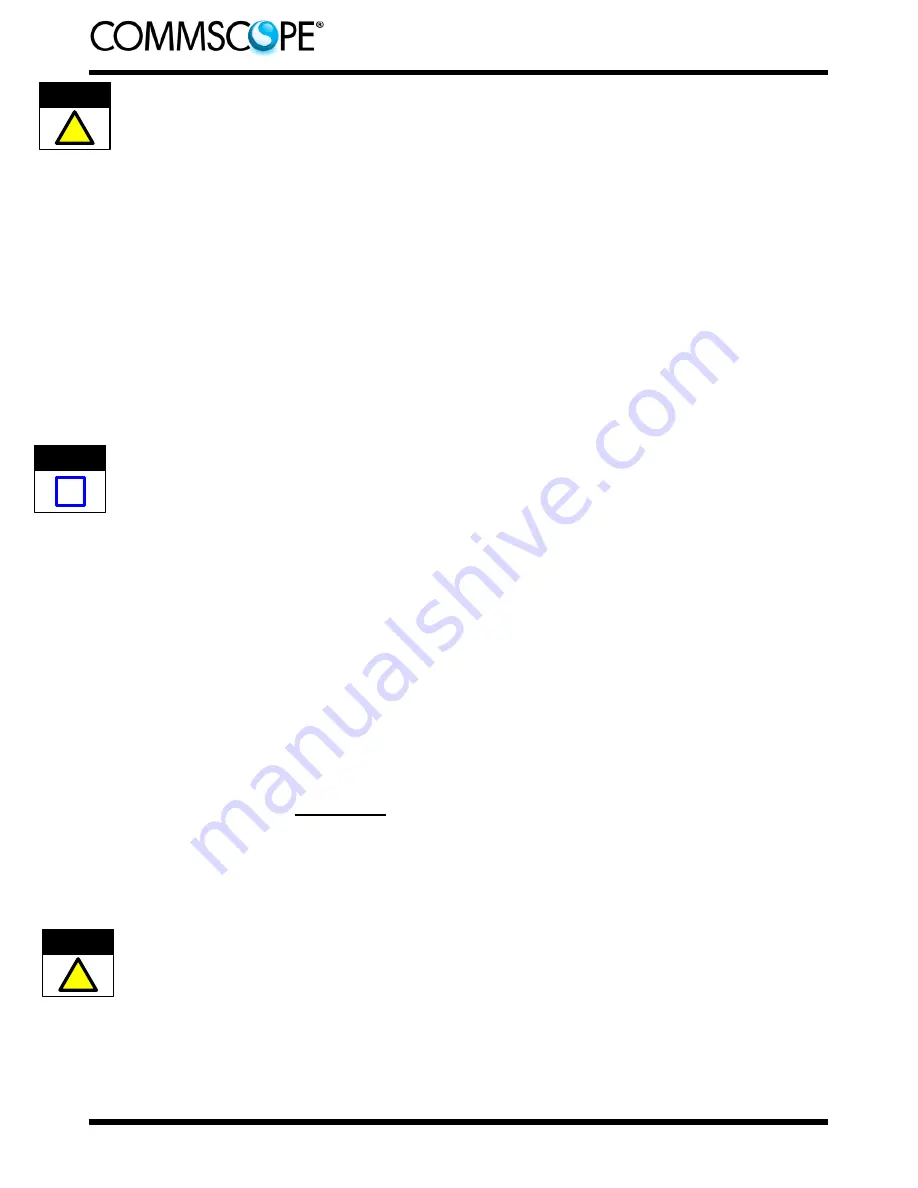
408- 4457
Rev
J
8
of 16
DO NOT attempt to clean the fiber after it has
been cleaved.
C. Crimping
(Figures 9, 10, and 11)
1. Open the cable clamp of the cable holder, and
hold the buffer (with the cleaved end of the fiber
facing the connector) inside the clamp. Pull the end
of the fiber even with the front of the arm of the
cable holder, and holding the buffer in place, close
the clamp. See Figure 9, Detail A.
2. Carefully insert the fiber into the plunger of the
connector assembly until the the fiber bottoms
against the internal fiber. Make sure that the
remaining mark on the buffer enters the plunger.
The resultant bend in the buffer should hold the
fiber against the internal fiber. See Figure 9,
Detail B.
It is important that the fiber bottoms against, and
remains against, the internal fiber. If the mark
does not enter the plunger or if the fiber does not
seem to bottom against the internal fiber, the
fiber may be caught on internal guides. Rotating
the connector and backing the fiber out a small
amount and re--entering may help. However, if
the mark will not enter the plunger, the fiber must
be re--stripped.
Make sure that the fiber does not pull rearward
from the contact (with the internal fiber) during
the crimping operation.
3. Squeeze the handles of the hand tool until the
ratchet releases. Allow the handles to open fully.
Gently close the handles until you hear three clicks
from the ratchet.
4. With the connector assembly in the cable
holder, position the ferrule protective cover in the
upper cavity of the front die and the plunger in the
upper cavity of the rear die. It is important to make
sure that the tip of the plunger sits in the channel
of the rear die with the protruding disk of the
plunger flat against the wall of the cavity. If the
plunger is not positioned correctly, it will be
crushed when the tool is actuated. See Figure 9,
Detail C.
The arrows marked on the front die indicate the
direction that the ferrule protective cover must be
pointing when the connector is positioned in that
cavity. For proper placement, and to avoid
damage to the fiber, the direction of the arrows
must be observed. Refer to Figure 9, Detail C
and Figure 10, Detail A.
5. Gently push the buffer toward the connector to
make sure that the fiber is still bottomed, then
slowly squeeze the tool handles together until the
ratchet releases. Allow the handles to open fully,
and remove the connector assembly from the dies.
6. Position the plunger of the connector assembly
in the first (smallest) cavity of the front die with the
shoulder of the plunger against the edge of the
groove in the die and the ferrule protective cover
pointing in the direction of the arrow. See Figure
10, Detail A.
7. Slowly squeeze the tool handles together until
the ratchet releases. Allow the handles to open
fully, and remove the connector assembly from the
die.
8. Slide the crimp eyelet away from the connector
until the strength members are free, then slide the
crimp eyelet toward the connector until the strength
members and crimp eyelet butt against the
connector. See Figure 10, Detail B.
For 2.0 -- to 2.4--mm jacketed cable, slide the black
tube forward into the small diameter end of the
crimp eyelet until it butts against the rear of the
connector.
9. Position the large diameter end of the crimp
eyelet in the last (largest) cavity of the front die
with the ferrule protective cover pointing in the
direction of the arrow. See Figure 11, Detail A.
Slowly squeeze the tool handles together until the
ratchet releases. Allow the handles to open fully.
10. Position the small diameter end of the crimp
eyelet in the middle cavity of the front die with the
ferrule protective cover pointing in the direction of
the arrow. See Figure 11, Detail B.
11. Slowly squeeze the tool handles together until
the ratchet releases. Allow the handles to open
fully, and remove the connector assembly from the
die.
12. Open the cable clamp of the cable holder, and
remove the cable from the clamp. Slide the strain
relief over the plunger until the strain relief butts
against the connector. See Figure 11, Detail C.
13. Remove the connector assembly from the
cable holder.
The assembly procedure for 2.0-- to 3.0--mm jacketed
cable is now complete.
"
If connecting connectors, inspect the ferrule end
face for cleanliness using 200
¢
Microscope Kit
1754767--1 (includes 2.5--mm adapter cap).
CAUTION
!
NOTE
i
CAUTION
!


































